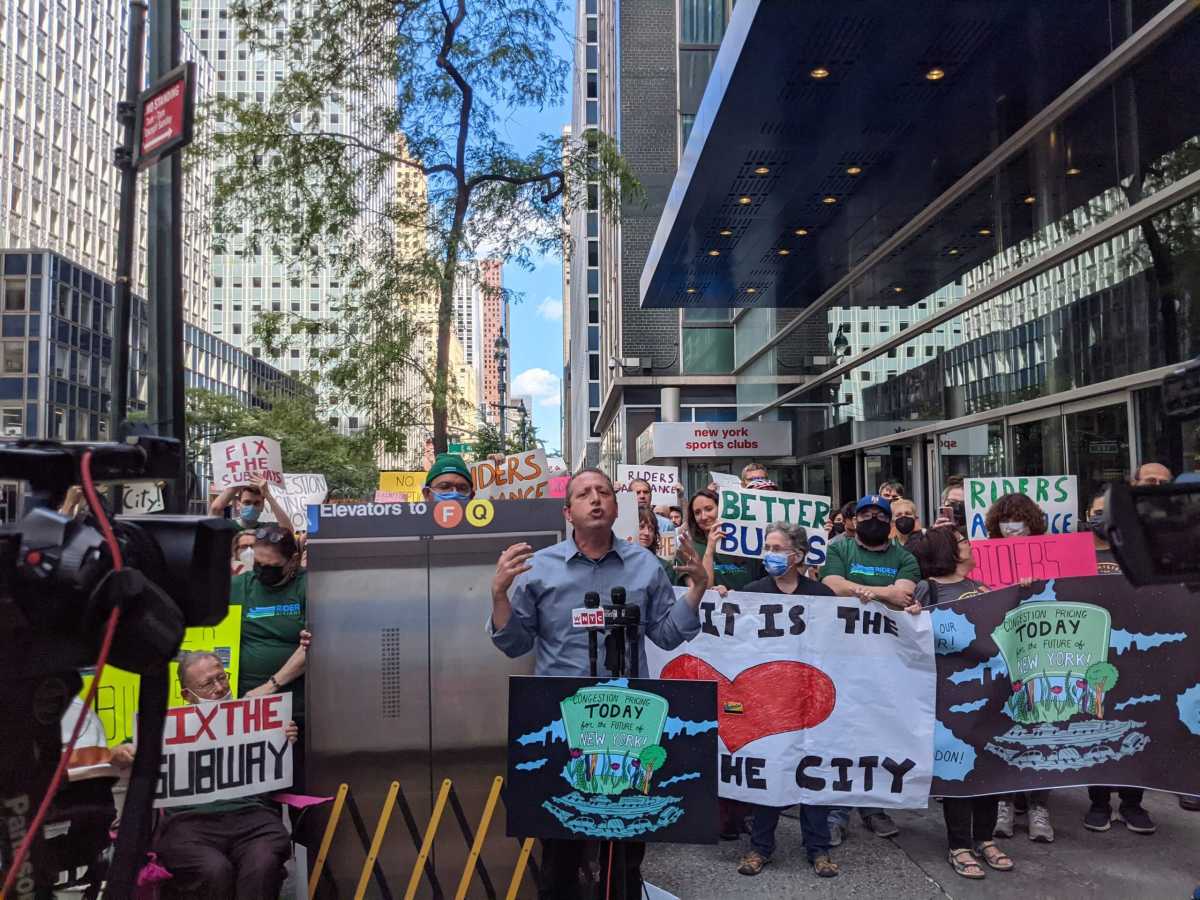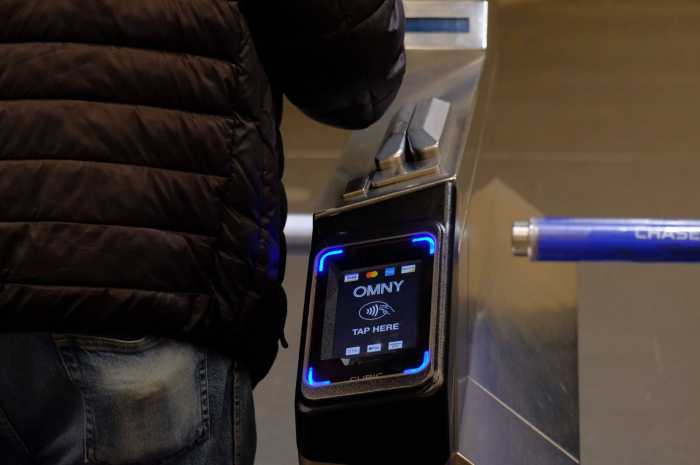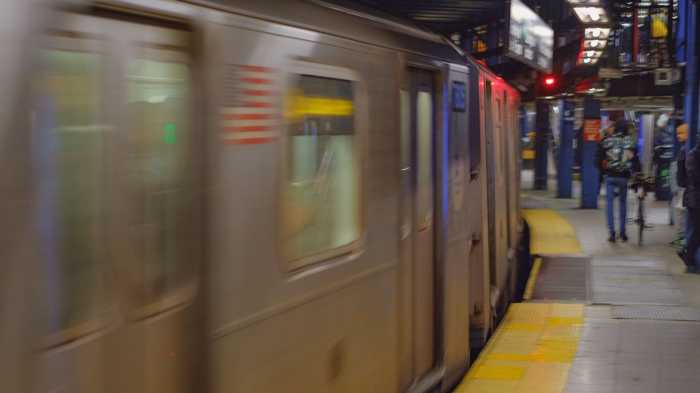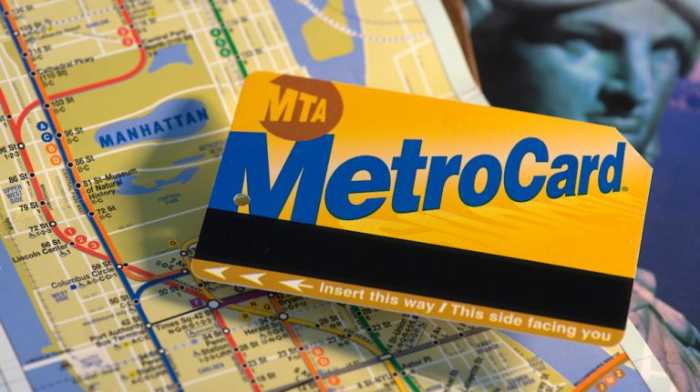Advocates and politicians gathered outside Governor Kathy Hochul’s Manhattan office on Sunday to rally in support of the state’s proposed Central Business District Tolling Program, also known as congestion pricing, to fund the city’s subways and buses.
“Congestion pricing is the key to New York’s recovery and future success,” said Riders Alliance Executive Director Betsy Plum on Sept. 26. “Millions of New Yorkers are united in our demand for reliable, accessible subway and bus service.”
The Metropolitan Transportation Authority last week launched into its three-week schedule of 13 public outreach sessions for the proposal to charge drivers heading into Manhattan below 61st Street, kicking off the first pair of meetings last Thursday, Sept. 23.
“NYC’s future depends on people being able to get around efficiently and sustainably. Key to that goal? Implementing congestion pricing to reduce gridlock and pollution, and fund robust public transit,” said Brooklyn Council Member and Democratic nominee for city Comptroller Brad Lander. “Governor Hochul, we need your full commitment to get it done right to help secure a vibrant and resilient city for years to come.”
Another Brooklyn pol noted the recent havoc wrought by remnants of Tropical Storm Ida, when record-shattering rain soaked the transit system, causing as much as $100 million in damages for MTA.
“The recent damage done to our subway system by Hurricane Ida demonstrated how crucial it is that we further fund and modernize our public transit system so we’re better prepared for the next destructive weather event,” said state Senator Andrew Gounardes. “Without congestion pricing, we can expect decreased quality of service on our subways, fare hikes, and increased pollution, which all have negative consequences for our city’s most vulnerable residents. It’s urgent that New York State expedite a robust congestion pricing policy as soon as possible.”
Hundreds of residents from the Five Boroughs and its commuter belt sounded off during the virtual meetings last week about the first-in-the-nation scheme (which has already been in place for years in other cities around the world like London and Singapore).
As part of a 16-month federally-mandated environmental assessment, the agency is running extensive public outreach, giving communities as far as south New Jersey and the Pennsylvania border to the west a say in the future of an area covering less than half the length of Manhattan Island.
Hochul initially seemed lukewarm about congestion pricing when she took over for disgraced ex-Governor Andrew Cuomo in August, but more recently she voiced her support, adding she wants to “reduce the timeframe.”
“As Governor Hochul has said, she is committed to implementing congestion pricing efficiently and effectively, and we appreciate the input of these advocates as we work to ensure a strong transportation network for all,” said Hochul spokesperson Hazel Crampton-Hays in a statement Sunday.
During last week’s meetings, some members of the public wholeheartedly endorsed the charge and others sought exemptions for certain vehicles like motorcycles or higher income groups, while opponents flat-out rejected the idea of having to pay to drive downtown.
The toll already exempts several people, including emergency vehicles, those living in the tolled zone who have household earnings of 60,000 or less, and vehicles transporting people with disabilities.
MTA officials have warned that adding more carveouts would increase the toll for remaining drivers so that the agency can still meet its revenue goals.
The toll is expected to bring in $1 billion a year and unlock $15 billion in debt financing for crucial MTA upgrades to its ailing public transit system.
Congestion pricing was approved in the Albany state legislature back in 2019 but has been stalled under former President Trump until earlier this year, when the Biden Administration let MTA proceed with the project.
One influential real estate lobbyist said Sunday the toll is needed even more than pre-pandemic, now that car traffic has more than fully rebounded while public transit ridership hovers around half of pre-COVID numbers.
“Congestion pricing is long overdue,” said James Whelan, president of the Real Estate Board of New York (REBNY). “The environmental benefits and increased financial resources for the MTA, in addition to greater ease of travel around core commercial districts, are more important today than when the policy was approved. We’re ready to get to work implementing this plan alongside State and City officials and other advocacy groups.”




































